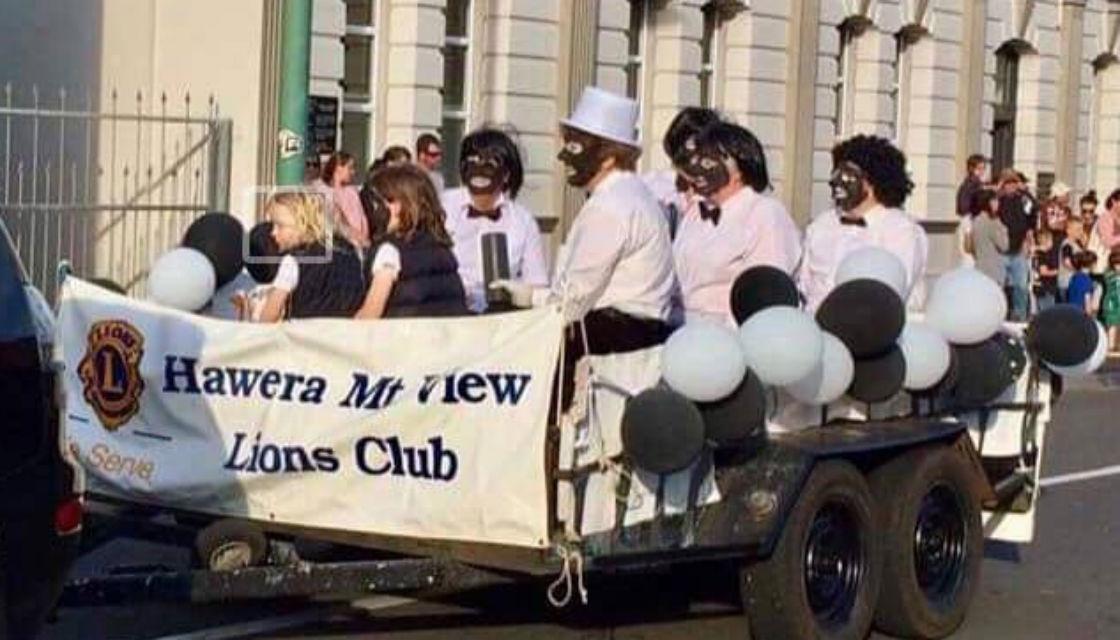Blackface isn't open to interpretation, it's racist and reflects caucasian people trying to maintain power, says a leading social sciences expert.
On Thursday, a photo of Canadian Prime Minister Justin Trudeau wearing brownface emerged, launching the issue of blackface back into the spotlight.
- Lions club deletes Facebook page after using blackface in parade
- Belgian festival under fire over blackface 'savage' character
- Opinion: The Project hosts on why blackface's history shows it's never okay
It was also announced on Wednesday that the Netherlands' Christmas Saint Nicholas parade won't feature any caucasian people wearing blackface.
While some suggest it is only a costume and doesn't physically hurt anyone, others are adamant is it offensive.
Auckland University of Technology associate professor of social sciences, Camille Nakhid, has a clear view - blackface is racist and not open to interpretation or debate.
She explains that blackface perpetuates "inaccurate stereotypes against people of colour and results in them being discriminated against".
"There are no different interpretations of blackface, it represents one thing only and that is the degradation of a people that historically have been mistreated and dehumanised for the gain of another group of people," she told Newshub.
"It is not fun, it is not a celebration… it is done only to show our racism, it is done to only show how inhumane and cruel and devoid of anything good that we are."
She also says while it isn't up to caucasian people to decide if blackface has a racist intent, all people should be encouraged to speak up against it.

Recent examples of the controversial symbol in New Zealand, such as in Hawera last year where Lions Club members dressed in blackface during the town's Santa parade, received nationwide backlash.
Nakhid says it is this form of challenging by every-day Kiwis that may be important to developing a society that doesn't enable offensive ideologies.
Although social media provides a platform for racist images to spread, it also allows the wider community to react, disabling the view of blackface as acceptable.
"With social media, we are pointing out those who are doing it, we are highlighting those instances where people are doing it," she told Newshub.
But those who wear blackface may also push back, Nakhid says, to maintain their power.
As more people gain avenues to speak up against it and dismantle the racist ideas it reflects, Nakhid says caucasian people use blackface to assert their "white supremacy" and "hold onto those last [aspects] of power".
"You don't see Māori using blackface, you don't see Native Americans using blackface, you see one particular group of people doing it," she told Newshub.
"It is the only remnant that they have left of power that was illusionary."
But Nakhid also believes blackface doesn't leave people of colour silenced, but instead their actions of opposition to it reflect their resilience and strength.
"The continued depiction of this history by wearing blackface does not make people of colour weaker. As a matter of fact it makes up stronger, it strengths our resolve, and we get tired of having to denounce it, but we will not stop denouncing it," she says.
"The consequences, the emotional effects of these actions are more relevant to those who carry out those actions, because it implies a hatred of yourself, a lack of confidence in yourself.
She encourages people of colour to continue speaking up and not let anyone believe blackface is acceptable.
"When we call people out on their racist behaviours, we are looking after those in our society," she says.
"Keep telling your stories, keeping telling the history, and don't back down."
Newshub.

